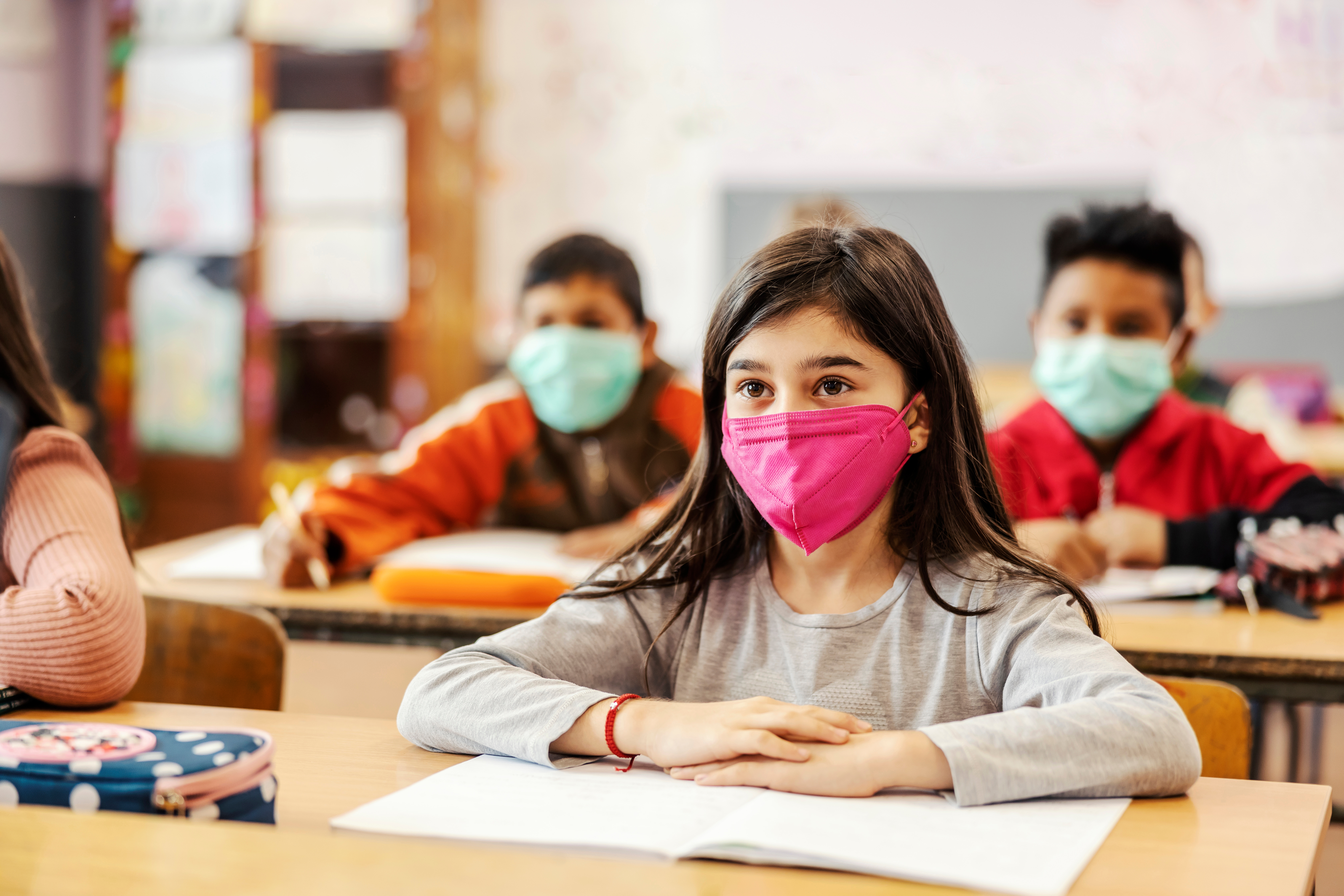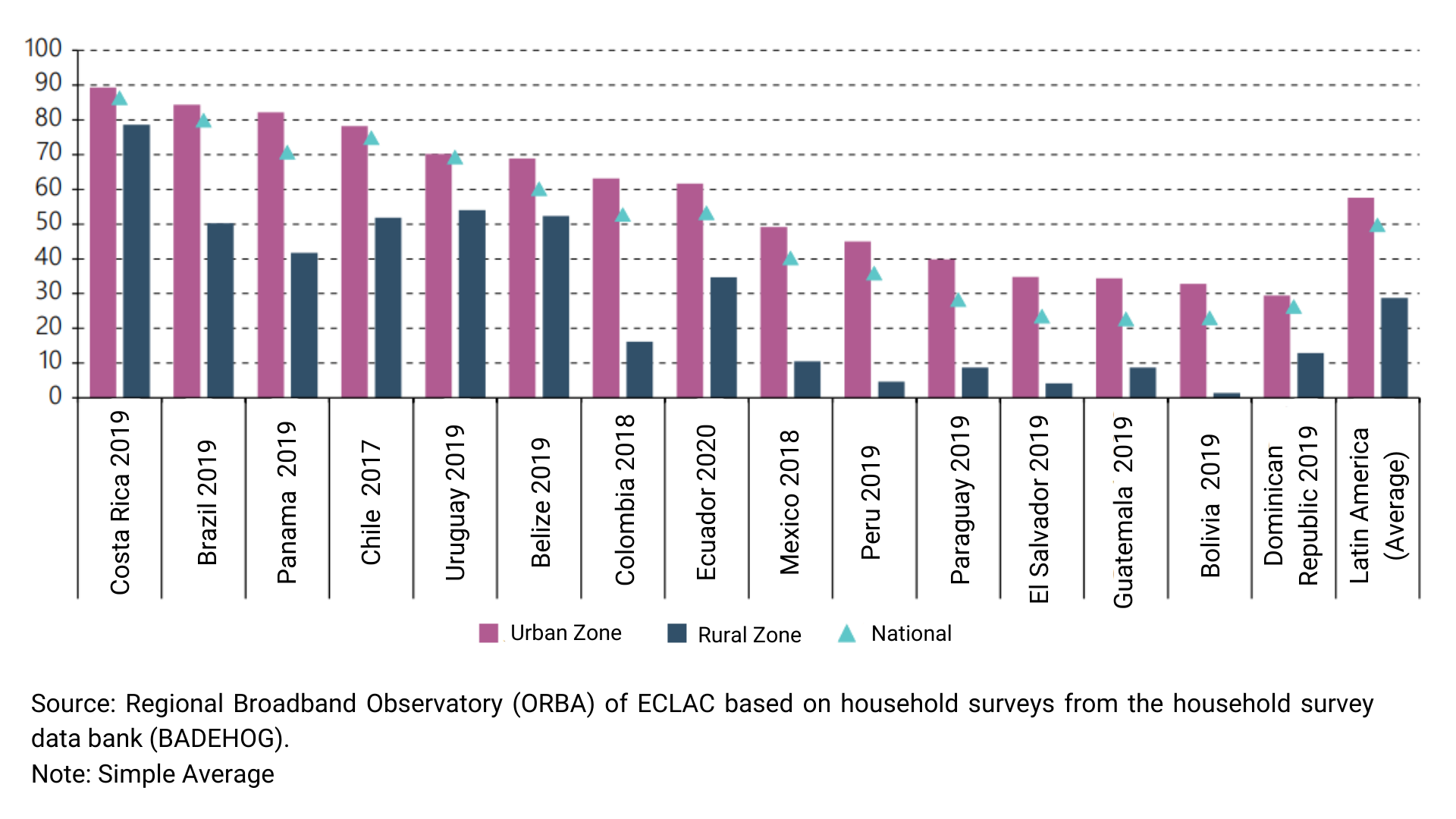The Pandemic is an Opportunity to Transform Education in Latin America and the Caribbean
Work area(s)
Topic(s)
The COVID-19 pandemic has generated a silent educational crisis that threatens to affect the educational and labour trajectories of children, adolescents, and young people. Prior to the pandemic, education in the region was already facing significant inclusion and quality challenges. Hence, it is necessary to take advantage of the opportunity not only to recover but also to transform the region's education systems.

One of the first measures to address the health emergency and control the spread of the COVID-19 disease was the closure of schools and the suspension of face-to-face education. On average, Latin America and the Caribbean was the region with the most extensive total or partial school closures: 70 school weeks between February 2020 and March 2022, a period considerably longer than the global average of 41 weeks.
The closure of schools led to the implementation of different remote education strategies to provide continuity to the teaching and learning processes. However, this context revealed critical inequalities and unmet needs, which manifested in the various possibilities that students in the region had to maintain autonomous learning processes at home and use new technologies efficiently.
The Pandemic Deepened Previous Educational Inequalities
The pandemic revealed profound inequalities in access to effective connectivity (quality Internet connection and devices for its use); the digital and socioemotional skills needed for autonomous learning; material conditions, such as adequate study spaces at home; the availability of support to facilitate learning processes by parents and caregivers; and in the educational offer, in particular, in the preparation of some teachers to adapt their pedagogical methods to the virtual environment.
During the reopening process, the impacts of the pandemic on the socioemotional well-being of students and teachers, the widening of learning gaps and the increased risk of school dropout are already becoming evident.
Latin America and the Caribbean (15 countries): connected and unconnected households by geographic area, latest available year (Percentage of total households in each area)

Public Policy Recommendations
Among the immediate measures to ensure the recovery of learning without leaving anyone behind, ECLAC recommends:
- Support the socioemotional well-being of students, teachers, and the entire educational community.
- Evaluate and recover learning and teaching processes at the appropriate level.
- Implement strategies focused on students at greater risk of disengagement and dropping out of school.
Likewise, the region must implement actions to address educational inequalities. This implies, among other measures:
- Reorganizing institutional conditions to universalize access to pre-primary and secondary education.
- Greater coordination of education with other public policy sectors to ensure the material conditions necessary for schooling.
- Directly addressing gender inequalities in their education systems.
Finally, the transformation of the region's education systems involves:
- Promoting spaces for flexibility and innovation in all levels of education systems.
- Promoting the role of teachers as agents of change.
- Promoting the development of cognitive and socioemotional competencies.
- Strengthening learning and teaching processes and managing information systems with digital media.
All this undoubtedly requires greater educational investment hand in hand with strengthened institutions and a new social pact for education that will ensure the financial sustainability of educational efforts. More information in our recent publication, Education in times of pandemic.
Country(ies)
- Latin America and the Caribbean